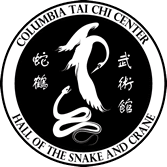The Most Comprehensive Review
of Tai Chi and Qigong’s Health Benefits
The Institute of Integral Qigong and Tai Chi (http://www.IIQTC.org), a training division of Health Action Inc in Santa Barbara, California, in collaboration with Arizona State University and the University of Arizona just released a comprehensive review of the health benefits of Tai Chi and Qigong, Chinese wellness practices, published in the prestigious American Journal of Health Promotion (AJHP).
The Chinese have had no need to prove that Qigong and Tai Chi are relevant, medically or scientifically as it is widely believed in Asia that these practices have great physical, mental and even spiritual benefits. The Asian societies have performed Qigong and Tai Chi consistently for millennia, i.e. these wellness practices are “tried and true.” However, in the Western world Qigong and Tai Chi are not familiar. The norm is to hesitate to grant that a concept or process has relevance and credibility until it has been proven to have quantifiable benefits.
In the past, when asked about the “evidence base” for Qigong and Tai Chi, most advocates would simply respond, “The Chinese have been doing these practices for thousands of years. That is plenty of evidence of their value.” Now, a bona fide “evidence base” for Qigong and Tai Chi is emerging from within the scientific framework of the Western world.
This recent collaboration to review the Qigong and Tai Chi literature has resulted in the most comprehensive review of the research literature on Qigong and Tai Chi that has ever been produced. Dr. Roger Jahnke, OMD and his colleague Dr. Linda Larkey, applied a rigorous criterion wherein only the best randomized controlled trials were considered in the review. The total of such research between 1993 and the end of 2007 was an impressive 77 trials. This review presents the entire Qigong and Tai Chi “evidence base” in one comprehensive presentation.
Read entire Qigong Institute Press Release:
http://www.feeltheqi.com/press/press-release/evidencebase-qigong.html
